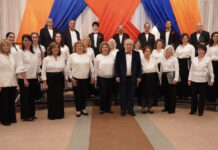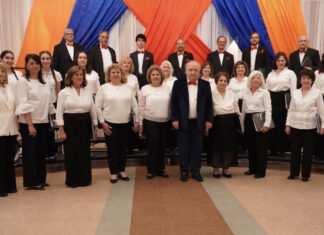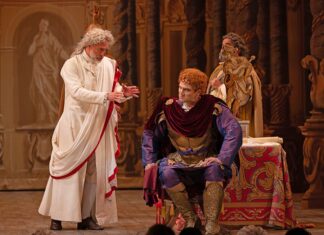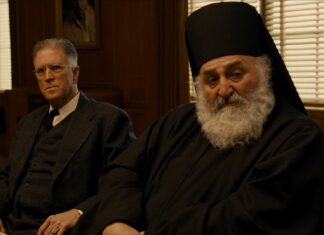By Elizabeth Bloom
PITTSBURGH, Penn. (Pittsburgh Post-Gazette) — It was a family reunion of sorts. But instead of long-lost cousins, this family reconnected with a long-lost violin, once removed.
Thirty-five years ago, a rare Stradivarius violin disappeared, stolen from a music school near Boston. On Thursday, August 6, it was returned to the family of its rightful owner, thanks in large part to a Pittsburgh violin maker who identified the instrument and reported it to the FBI.
Phillip Injeian, who sells and repairs instruments at his shop on Penn Avenue, authenticated the 1734 violin, called the Ames Stradivarius, and determined it had been stolen from renowned violinist Roman Totenberg, who had died in 2012.
The grand violin theft was first described Thursday by Totenberg’s daughter, Nina Totenberg, a reporter for National Public Radio, after the FBI called her to say it had recovered the instrument. She and her sisters retrieved the violin at a ceremony Thursday at the US Attorney’s office in New York, which Injeian attended.
The story has received international attention. The ex-wife of Phillip Johnson, the man believed to have plucked the violin from Totenberg’s office at the Longy School of Music in Cambridge, Mass., discovered the instrument while cleaning house in California, NinaTotenberg reported. Because Phillip Johnson is dead, leaving few clues about the violin’s provenance, a musician friend of his ex-wife’s suggested she take it to Injeian, whose client list includes violinists Leonidas Kavakos, Nigel Kennedy, Sidney Harth and Andres Cardenes, former Pittsburgh Symphony Orchestra concertmaster.







